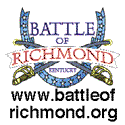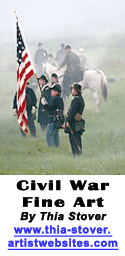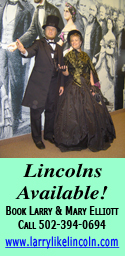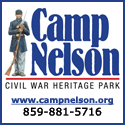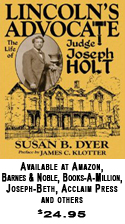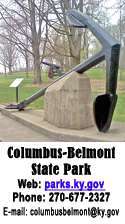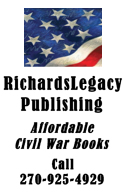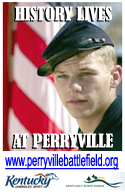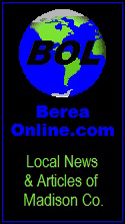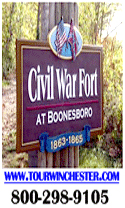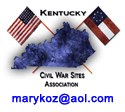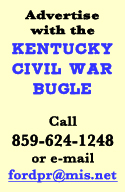|
Fighting on empty stomach possible,
but both sides needed coffee as fuel
An army may fight on its stomach, but in the Civil War something else may have been paramount. Coffee.
For Union soldiers and fortunate Confederates who could scrounge some, coffee fueled the war. Soldiers drank it before marches, after marches, on patrol, during combat.
Union troops made their coffee everywhere and with everything: with water from canteens and puddles, brackish bays and Mississippi mud, liquid their horses would not drink. They cooked it over fires of plundered fence rails, or heated mugs in scalding steam-vents on naval gunboats. When times were good, coffee accompanied beefsteaks and oysters; when they were bad it washed down raw salt-pork and maggoty hardtack. Coffee was often the last comfort troops enjoyed before entering battle, and the first sign of safety for those who survived.
The Union Army encouraged this love, issuing soldiers roughly 36 pounds of coffee each year. Men ground the beans themselves (some carbines even had built-in grinders) and brewed it in little pots called muckets.
For much of the war, the massive Union Army of the Potomac made up the second-largest population center in the Confederacy. Confederates were not so lucky. The Union blockade kept most coffee out of seceded territory. One British observer noted that the loss of coffee “afflicts the Confederates even more than the loss of spirits,” while an Alabama nurse joked that the fierce craving for caffeine would, somehow, be the Union’s “means of subjugating us.” When coffee was available, captured or smuggled or traded with Union troops during casual cease-fires, Confederates wrote rhapsodically about their first sip.
The problem spilled over to the Union invaders. When Gen. William T. Sherman’s Union troops decided to live off plunder and forage as they cut their way through Georgia and South Carolina, soldiers complained that while food was plentiful, there were no beans to be found. “Coffee is only got from Uncle Sam,” an Ohio officer grumbled, and his men “could scarce get along without it.”
Confederate soldiers and civilians would not go without. Many cooked up coffee substitutes, roasting corn or rye or chopped beets, grinding them finely and brewing up something warm and brown. It contained no caffeine, but desperate soldiers claimed to love it. Gen. George Pickett, famous for that failed charge at Gettysburg, thanked his wife for the delicious “coffee” she had sent, gushing: “No Mocha or Java ever tasted half so good as this rye-sweet-potato blend!”
Did the fact that Union troops were near jittery from coffee, while rebels survived on impotent brown water, have an impact on the outcome of the conflict? Union soldiers certainly thought so. Though they rarely used the word “caffeine,” in their letters and diaries they raved about that “wonderful stimulant in a cup of coffee,” considering it a “nerve tonic.” One depressed soldier wrote home that he was surprised that he was still living, and reasoned: “what keeps me alive must be the coffee.”
Others went further, considering coffee a weapon of war. Gen. Benjamin Butler ordered his men to carry coffee in their canteens and planned attacks based on when his men would be most caffeinated. He assured another general, before a fight in October 1864, that “if your men get their coffee early in the morning you can hold.”
Coffee did not win the war – Union material resources and manpower played a much, much bigger role – but it might say something about the victors. From one perspective, coffee was emblematic of the new Northern order of fast-paced wage labor, a hurried, business-minded, industrializing nation of strivers.
But more than that, coffee was simply delicious, soothing – “the soldier’s chiefest bodily consolation” – for men and women pushed beyond their limits. Caffeine was secondary. Soldiers often brewed coffee at the end of long marches, deep in the night while other men assembled tents.
|

